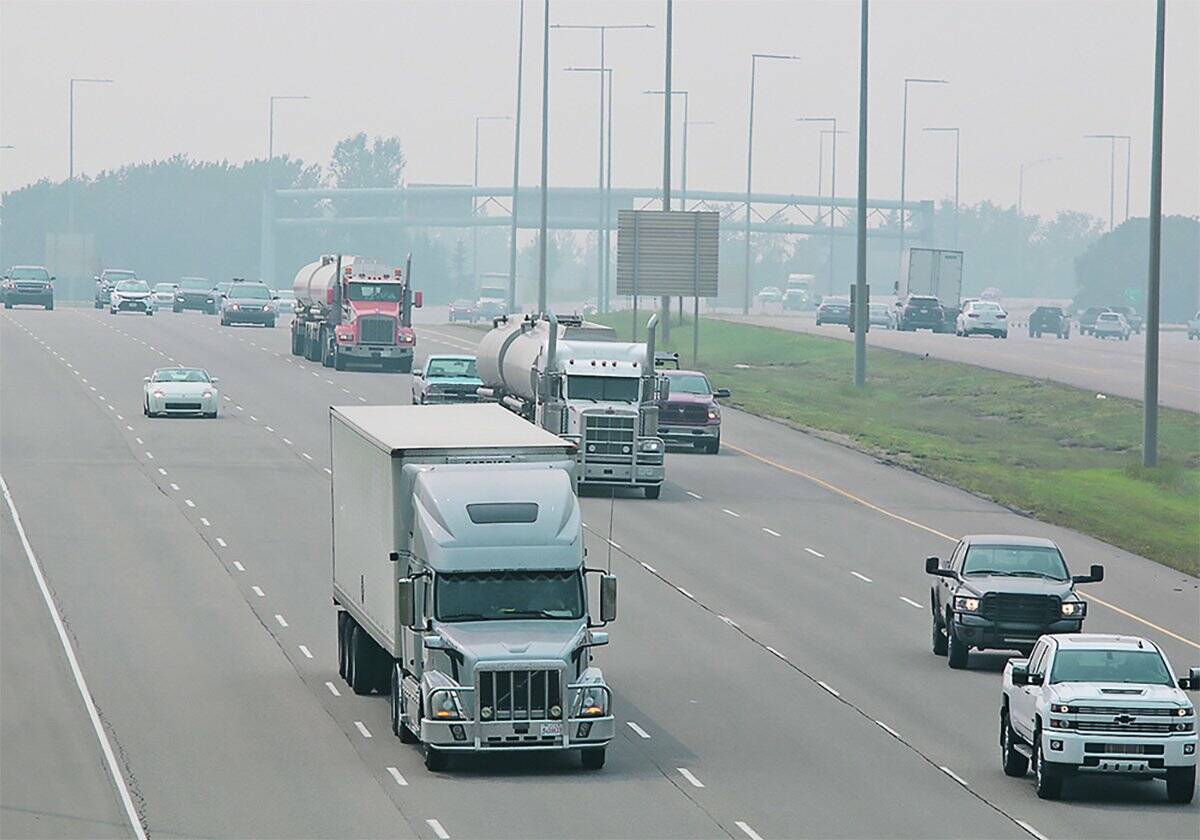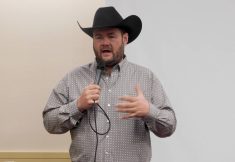“It would be nice if the Alberta government had a different view on the organization and stopped pushing for dual marketing.”
ALLEN OBERG
CHAIRMAN, CANADIAN WHEAT BOARD
Allen Oberg, a long-time Alberta grain and cattle farmer and experienced director on both the provincial and national agriculture scenes, has been elected chairman of the Canadian Wheat Board’s board of directors.
Allen and his brother John have run the family’s third-generation, 6,500-acre mixed crop and cattle operation near Forestburg for the past 30 years.
Read Also

Wheels of Opportunity tackles Alberta’s driver shortage to save rural ag economies
A southeastern Alberta collaboration with new programming is looking to address the lack of drivers in the agricultural industry.
Oberg has been a CWB director for the past nine years, and previously served 11 years as a director of Alberta Wheat Pool.
Not surprisingly, Oberg is a passionate advocate for the CWB.
“One of the things that I’ve always believed, especially since the changes in 1998 that made the CWB more farmer controlled, is that here is an organization that can really make an important difference for farmers.”
Oberg says that gives producers the best of two worlds – the market clout and advantages of a single desk, combined with several producer-pricing options that virtually mimic what would happen in the open market.
The board chairman role is not an easy one, particularly in light of the current political and economic climate. Low commodity prices, a tough start to this year’s growing season, global-trade uncertainty, and clashing views on the efficacy of a single wheat-marketing agency are all top of mind for Oberg.
He says trade uncertainty is the one that is most likely to keep him awake at night.
“We’re watching extremely closely what’s happening at the World Trade Organization (WTO). The wheat board has been unfairly targeted. It is the only organization in the world that the WTO has singled out and is working towards cancelling.”
Farmers would be giving up a great deal, and in return not receiving much in terms of market access, Oberg says.
“It’s the one issue we don’t have an answer for at this time. We continue to argue our case. We do hope the federal government is stronger on this than they have been. We’re not seeing any real evidence of that, though.”
Dual marketing not an option
Oberg is concerned about the producer and government voices calling for a move away from the CWB’s wheat marketing monopoly. He believes those who are calling for marketing options do not understand the ramifications of dual marketing.
“We have some real-life examples not only in Ontario but also in Australia of what happens when a single-desk organization goes voluntary,” Oberg says. “The question is not whether we should have a voluntary wheat board. The question is do you want a wheat board or an open market. You can’t have both.
“I hope that for those who are somewhat in doubt, that they take another look and maybe think about what the world would be like without the CWB,” Oberg says.
He’d like his provincial government in Alberta, which favours a dual market, to have a different view. That said, at a recent meeting with Agriculture Minister Jack Hayden, Oberg says he noticed a “surprising number of issues” on which he and the minister saw eye to eye on. Oberg says he feels the minister understands and agrees that the loss of agricultural infrastructure in Western Canada is an important concern. Oberg also says that the provincial government was open to the concept of shortline railways, and an infrastructure building and producer car option addition that the CWB strongly promotes.
Railways overcharge
Oberg hopes the CWB’s campaign requesting the federal government conduct a rail transportation costing review will directly and positively impact Prairie producers in the near future.
“We feel farmers have been overcharged for rail transportation for some time,” Oberg says. “This is the type of issue that the wheat board can take on.”
At the Farm Progress Show in Regina last week, the CWB was to release updated numbers that specifically outline how much western Canadian producers have been overcharged for rail freight. Oberg suggests that interested producers can utilize the new freight rate calculator available on the CWB website to get an idea of how much more than their fair share they’ve individually paid to the railways.
There may be difference of opinion among some producers with regards to the CWB’s role and value, but it’s hard to argue against Oberg’s obvious passion for the wheat board and his role within it.
“The organization has just scratched the surface on what we can do for farmers,” he says. “I’m certainly committed to making the CWB a stronger organization. I’m going to speak up when I feel that farmers’ rights are being threatened.”
The CWB board is made up of 10 producer-elected and five government-appointed directors. The directors annually a chairman. Oberg replaces Larry Hill, who served as chairman for the past two years and has fulfilled his maximum number of elected terms.
Oberg will continue to represent District 5 (northeast Alberta and northwest Saskatchewan) as the farmer-elected representative at the CWB board table.














